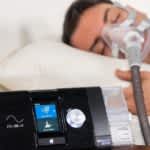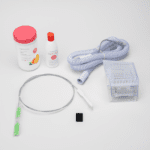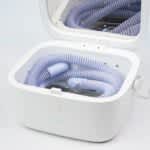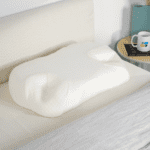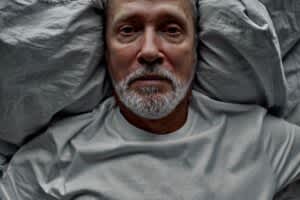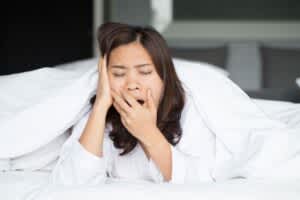Between 10% and 25% of people feel sleepy to the point that it interferes with their daily lives. You may have trouble staying awake when you fail to get enough sleep, spend too many hours awake, or work night shifts. If you find yourself in this position, it may be helpful to learn techniques for how to stay awake.
We explore the best ways to stay awake, ranging from short-term solutions like caffeine and bright light to more holistic approaches, such as improving sleep habits.
Seek Bright Light
Light plays an important role in regulating your body’s sleep-wake cycle. Bright light, especially sunlight, signals your brain that it’s time to be awake.
If you’re wondering how to stay awake when tired during a night shift, try installing brighter lighting in your workplace or using a portable light box. Blue light from smartphone and computer screens also stimulates alertness.
Take a Short Nap
There’s no substitute for obtaining sufficient good-quality sleep, but a short nap may provide you with a temporary boost in energy. Napping can increase your alertness and improve on-the-job performance. Compared with simply resting, naps are much more effective at fighting fatigue.
The ideal length for a nap is 15 to 30 minutes, as longer naps can cause you to feel groggy when you wake up. Taking longer naps or napping too close to your typical bedtime may also make it harder to fall asleep later.
If you’re napping in a busy place, use earplugs and a sleep mask to block out distractions. Washing your face can help beat grogginess on waking.
Use Caffeine
Caffeine is a stimulant, meaning it helps you stay awake when you are tired. This substance is present in coffee, tea, energy drinks, and certain soft drinks.
Caffeine works by blocking adenosine, a compound produced by the body that causes drowsiness. In addition to promoting alertness, caffeine may also improve attention and reaction times.
Drinking a cup of coffee right before or after a short nap can help you wake up feeling more energized. However, the effects of caffeine take around eight hours to wear off, so make sure to stop drinking caffeine well before your intended bedtime.
People who regularly drink caffeine may find that over time, it’s not as effective at helping them stay awake. You should also take care when combining two or more caffeinated products, as high doses can be harmful.
Go for a Walk
You are more likely to feel sleepy during periods of low activity, such as when driving for long periods or sitting at a desk. If you can, take frequent breaks to stay alert. You can make the most of these breaks with energizing activities like stretching or taking a brisk walk. Exercise also improves your mood and may contribute to better nighttime sleep.
Eat a Snack and Stay Hydrated
Staying hydrated and eating regularly can help keep up your energy levels.
Sugary foods and low-fiber carbohydrates can exacerbate fatigue, so try to choose foods that are less likely to spike your blood sugar levels. Good options for boosting energy include fruits and vegetables, whole grains, yogurt, nuts, eggs, and cheese.
Drinking lots of fluids can help you stay hydrated, but avoid alcohol and sugary drinks, which can make you feel sleepier.
Improve Your Sleep
Generally, when people have trouble staying awake, it’s because they are short on sleep. Improve sleep by practicing a consistent bedtime routine, avoiding electronics in the bedroom, and keeping the bedroom cool, dark, and quiet.
As much as possible, try to keep the same sleep schedule every day, even on days off. When you are accustomed to waking up at the same time every day, it’s easier to feel alert.
Adjust Medications
Sometimes, medications for other health conditions cause sleepiness as a side effect. When this occurs, ask your doctor if it’s safe to switch to another type of medication or lower the dose.
On a similar note, taking sleep medications when you don’t have time to get a full night’s sleep may cause lingering drowsiness when you wake up. Consider taking a lower dose, and avoid driving until the effects wear off.
Shift workers or people with disorders that cause sleepiness can ask their doctor about wake-promoting medications.
Seek Help From a Healthcare Professional
Talk to a doctor if you have trouble sleeping well, or if you often struggle to stay awake despite getting adequate sleep. Excessive sleepiness may be a symptom of a treatable sleep disorder or medical condition.
Sleepiness can be very dangerous when driving or performing other safety-sensitive tasks. If you can’t arrange alternative transportation, pull over to the side of the road and take a brief nap before continuing to drive.
References
Ask the Sleep Doctor
Have questions about sleep? Submit them here! We use your questions to help us decide topics for articles, videos, and newsletters. We try to answer as many questions as possible. You can also send us an email. Please note, we cannot provide specific medical advice, and always recommend you contact your doctor for any medical matters.


